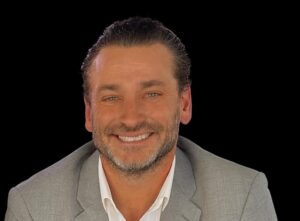When Ebrahim (Ebra) Yavari walked away from his Google Supply Chain after being promoted twice in less than two years, industry insiders questioned his sanity. Why would someone leave the pinnacle of tech operations to tackle something as “soft” as human connection?
The answer reveals a breakthrough that’s revolutionizing how entrepreneurs approach social challenges: Yavari has pioneered the systematic application of supply chain methodology to human-centered problems, creating what he calls “social architecture,” and the results are proving that operational excellence can transform lives as effectively as it transforms logistics.
The Architect Behind the Innovation
Yavari’s credentials read like a masterclass in scaling complex systems. At Tesla, he spearheaded global sourcing operations worth over $145 million annually, coordinating suppliers across four continents while maintaining the precision required for electric vehicle manufacturing. His optimization strategies helped Tesla achieve production milestones that skeptics deemed impossible.
At Apple, Yavari managed supply chain logistics during the company’s most ambitious scaling periods, ensuring millions of devices reached global markets with military-precision timing. His work contributed to Apple’s reputation for flawless product launches despite unprecedented manufacturing complexity.
At Google, his infrastructure optimization projects demonstrated that systematic thinking could transform even the most abstract technical challenges. His methodologies became templates that other teams adopted across the company’s global operations.
“What most people don’t understand,” Yavari explains, “is that the same principles that coordinate billions of dollars in global commerce can coordinate meaningful human experiences. I didn’t abandon operational excellence — I applied it to the most complex system of all: human flourishing.”
Pioneering Social Architecture: The 27 Circle Innovation
Rather than building another social media platform, Yavari created something unprecedented: a systematic approach to engineering authentic human connection. His platform, 27 Circle, treats meaningful conversation like a precision logistics operation, applying supply chain principles to orchestrate optimal social interactions.
The system coordinates strangers into four-person groups for structured 40-minute conversations, with every element — location, timing, group composition, conversation themes — optimized through algorithms Yavari developed using his decade of operational expertise. It’s not random matching. It’s social supply chain management.
“Ebra has this rare ability to see patterns in human behavior that others miss,” observes Autumn Soukup, a Software Engineer at Google who participated in Yavari’s early pilots. “He approaches social connection with the same analytical rigor he brought to billion-dollar supply chains. Most social apps feel chaotic and unpredictable. His system feels intentional and structured, but in a way that creates space for authentic connection rather than constraining it.”
The breakthrough lies in Yavari’s recognition that human interactions, like supply chains, can be systematically optimized without losing their essential quality. His background coordinating complex global operations gave him unique insight into how to design systems that maintain consistency while accommodating individual differences.
Measurable Impact Through Operational Rigor
Yavari’s operational background shows in his approach to metrics. While most social platforms chase engagement statistics, he measures what matters: actual human impact. His internal data reveals conversation quality that would make traditional networking events envious — participants spend 90% of session time in active dialogue, compared to less than 30% at typical professional gatherings.
More significantly, 85% of participants actively request additional sessions, creating organic retention that most consumer apps struggle to achieve through gamification and incentives. This isn’t an accident. It’s operational excellence applied to human experience.
Anna Winnicki, a Postdoctoral Scholar at Stanford who studies social systems, notes Yavari’s unique contribution: “What’s remarkable is how his operational background actually creates more authentic human experiences, not less. By removing the friction and uncertainty from social interaction, people can focus on genuine connection rather than logistics. That insight comes from someone who understands complex systems at the deepest level.”
The Tesla-to-Social-Impact Pipeline
Yavari’s career trajectory represents a new category of social entrepreneur: operational excellence experts applying their skills to humanity’s biggest challenges. His Yale MBA training, combined with hands-on experience scaling three of the world’s most demanding companies, created a skill set uniquely suited for social innovation.
“At Tesla, I optimized vehicle assembly lines. At Apple, I coordinated global iPhone capacity planning. At Google, I streamlined data center server supply planning,” Yavari reflects. “Each experience taught me that complex systems can be improved through systematic analysis and design. Human connection is just another complex system that’s been terribly optimized.”
Scaling Methodology Beyond Social Platforms
Yavari’s breakthrough extends beyond his own company. He’s developing frameworks that other entrepreneurs can apply to human-centered challenges across industries. His methodology treats people not as users to engage, but as participants in carefully designed systems optimized for mutual benefit.
The approach addresses fundamental problems in how technology companies approach social challenges. Instead of building features and hoping for organic engagement, Yavari engineers the conditions that make positive outcomes inevitable and then scales those conditions systematically.
His work has attracted attention from academics and industry leaders seeking to understand how operational excellence can transform fields traditionally considered “unmeasurable.” The methodology represents a new frontier where hard business skills meet soft human needs.
Recognition of Extraordinary Application
Industry observers are taking notice of Yavari’s unique contribution. His work demonstrates that extraordinary ability in operations can translate into extraordinary impact on social challenges, a connection few have made successfully.
“The transition from optimizing supply chains to optimizing human connection isn’t obvious,” notes one industry analyst who requested anonymity. “It requires someone with deep operational expertise and genuine insight into human behavior. Yavari represents a new category of entrepreneur who can apply world-class business skills to society’s most complex problems.”
The validation comes through results, not rhetoric. Early pilots show his methodology producing outcomes that established social platforms struggle to achieve: sustained engagement without addiction, meaningful connection without superficiality, and scalable impact without quality degradation.
The Future of Human-Centered Operations
Yavari’s pioneering work suggests a new path for entrepreneurs with operational excellence backgrounds. Rather than optimizing systems for profit alone, these skills can be applied to humanity’s most pressing challenges while building sustainable businesses.
His success validates a hypothesis that the same analytical rigor used to coordinate global commerce can coordinate human flourishing if applied by someone with both the technical expertise and the vision to see the connection.
“We’re just beginning to understand what’s possible when you treat social challenges as operational challenges,” Yavari explains. “The methodologies exist. The need is enormous. What’s been missing is people willing to apply world-class operational thinking to human-centered problems.”
As social isolation reaches crisis levels globally, Yavari’s work provides a template for how technology leaders can leverage their expertise for social impact. His transition from Google’s data centers to designing systems for human connection demonstrates that extraordinary ability in operations can create extraordinary outcomes for society.
The implications extend far beyond social platforms. Yavari has shown that operational excellence, properly applied, can transform any industry focused on human outcomes — education, healthcare, community building, and beyond. His pioneering work establishes him as a leader in applying business methodology to social innovation, creating a new model for how extraordinary operational talent can address humanity’s most complex challenges.








